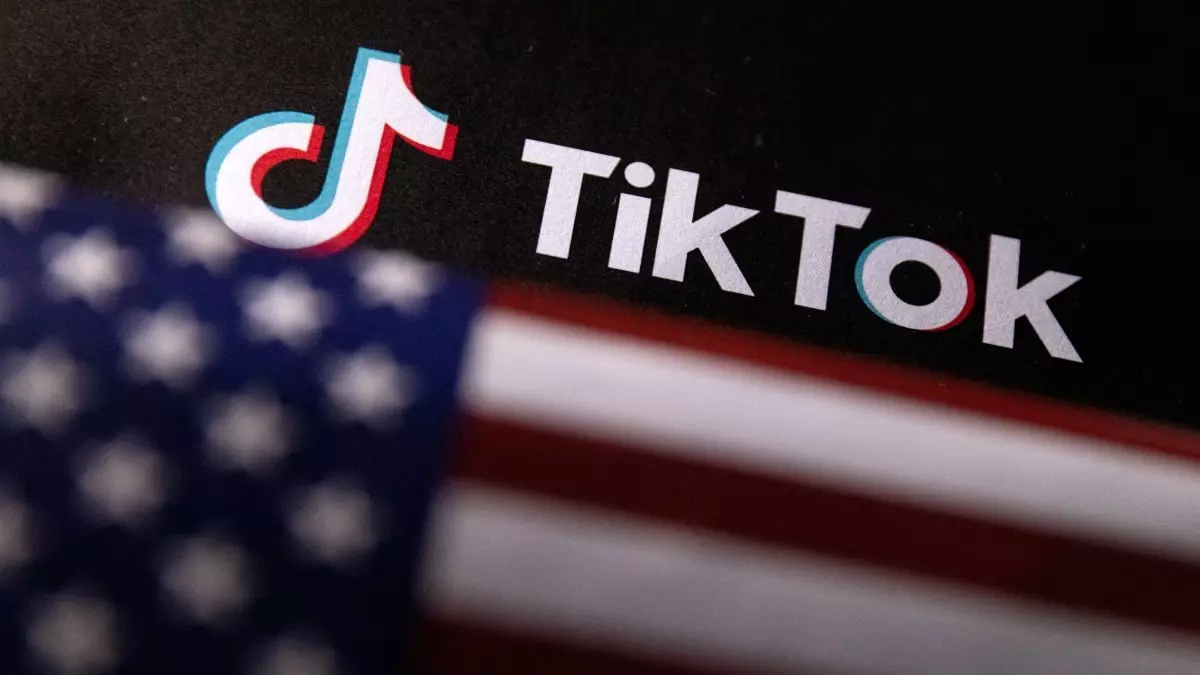The journey of TikTok within the United States has been nothing short of tumultuous, characterized by a blend of political maneuvering, strategic deliberations, and the palpable tension of national security concerns. Recently, TikTok found its way back into the app stores of Apple and Google, thanks in part to a temporary reprieve granted by then-President Donald Trump. This moment of reprieve serves as a significant inflection point in a broader narrative about technology, globalization, and governmental oversight.
A Brief Respite or a Delayed Reckoning?
In a notable twist of events, President Trump opted to delay a ban on TikTok by 75 days, a decision rooted in a complex interplay of political interests and legal considerations. This measure allowed ByteDance, the app’s Chinese parent company, to maintain its operations within the US market temporarily. The anxiety surrounding TikTok was not without merit, as lawmakers raised alarms about potential data privacy violations and national security risks posed by foreign ownership. Nevertheless, this uncertain situation raises crucial questions: Is this merely a stopgap measure, or does it indicate a strategic opportunity for broader negotiations regarding data security and user privacy?
While TikTok is widely popular—boasting more than 52 million downloads in the preceding year—this popularity has not shielded it from scrutiny. The app’s ability to engage nearly half of the American population highlights the profound cultural implications of social media in modern society. Still, the fact that Google and Apple initially removed TikTok from their U.S. stores underscores the complexity of their positions; as gatekeepers in the digital marketplace, both companies had to navigate the repercussions of hosting an app embroiled in political controversy. Analysts theorize that the delay in reinstating TikTok stemmed from these tech giants waiting for legal assurances, and this underscores the entwined relationship between technological platforms and policy-making.
The legal backdrop governing TikTok’s operations in the U.S. is both nuanced and consequential. Under a law signed by President Joe Biden, ByteDance was tasked with selling TikTok’s U.S. assets or facing a possible ban due to rising diplomatic tensions and national security concerns. Historically, the U.S. government has refrained from banning significant social media platforms—this case has marked a departure from that trend. The law not only empowers the government with the capacity to restrict Chinese-owned apps but also raises concerns over the future landscape of technology and international business practices in America.
Moreover, Trump’s assertion that negotiations with potential buyers of TikTok have commenced illustrates the intense competition and commercial interests entwined with the app. For potential buyers, such as former Los Angeles Dodgers owner Frank McCourt, this presents an opportunity to acquire a fast-growing business with an estimated valuation that could soar to $50 billion. The tense negotiation environment fueled by political posturing highlights how commercial interests can often be overshadowed by governmental intervention.
The potential ban and subsequent delays not only have implications for tech giants and entrepreneurs but also for everyday consumers and content creators who rely on TikTok for entertainment, expression, and income. The app has redefined the landscape of social media interaction, offering a platform where creativity knows no bounds. From viral dance challenges to micro-educational content, TikTok has reshaped how users engage with information and entertainment.
Yet, as concerns about privacy and national security grow, the specter of regulatory actions may lead to broader implications for how apps are designed and governed. This conundrum—a tug-of-war between innovation and regulation—may serve as a harbinger of an evolving landscape where companies may face increasing scrutiny over their corporate governance and data practices.
The saga of TikTok highlights the intricate interplay between politics, commerce, and societal interests in a digital age. The future of TikTok in the U.S. remains uncertain, hovering at the crossroads of legal intervention, national security, and cultural influence. The decisions made in the coming months could reverberate through the tech ecosystem, influencing not just TikTok, but the fate of other foreign-owned apps in America.


Leave a Reply